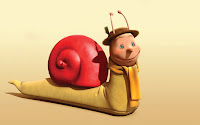Dorothee Richter and Kim Novak as Gillian Holroyd in
Bell, Book and Candle (dir. Richard Quine, 1958)
According to Dorothee Richter, who - among other things - is a professor in contemporary curating at the University of Reading, nostalgia for the thing is always reactionary and, as such, makes her feel uncomfortable and unhappy [1].
Which is a shame.
However, at the risk of adding to her discomfort and distress, I'm afraid that my fascination with das Ding - whether in the prose poems of Francis Ponge [2], the philosophical reflections of Martin Heidegger [3], or the psychoanalytic seminars of Jacques Lacan [4] - grows stronger by the year.
Richter can't quite understand why there are thinkers - like Vilém Flusser [5] and Byung-Chul Han [6] - for whom the thing is still an alluring object, albeit one that is rapidly vanishing in this virtual age of Undinge:
"Have we not been here before, and have we not, with good reason, rejected the auratic view of things? [...] Why is there this cyclically recurring nostalgia for the thing in its pure aspect?" [7], she asks.
And, yes, I suppose we have been here before. And perhaps there are good reasons to be suspicious of those who become too taken with the idea that things, including artworks and human beings, have a magical quality or essence.
But, having said that, who wants to live in an entirely disenchanted world where everything has been dissolved and digitalised into quantifiable data to be processed by artificial intelligence?
I don't. And, if I'm honest, it shocks me that anyone would.
When push comes to shove, I stand with the young witch I met recently at Treadwell's [8], who told me that when non-things beckon her to enter a virtual hell,
she relies on the saving power of bell, book, and candle to summon her back to reality.
Notes
[1] Dorothee Richter, '(Non-)Things or Why Nostalgia for the Thing is Always Reactionary', OnCurating, Issue 45: click here.
This is a slightly modified version of an essay, trans. Judith Rosenthal, that was originally published under the title '(Un)Dinge, oder warum die Sehnsucht nach dem Ding immer reaktionär ist', in Interdisziplinäres Ausstellen, ed. Sabine Fauland, (Österreichischer Museumsbund, Vienna, 2016).
[2] Francis Ponge (1899 - 1988); French essayist and poet. Influenced by both surrealism and phenomenology, Ponge developed a unique style of writing in which he closely examined everyday objects. See Le Parti pris des choses (1942), a collection of 32 prose poems, translated into English by Beth Archer Brombert as Taking the Side of Things (1972) and as The Nature of Things by Lee Fahnestock (1995).
[3] Martin Heidegger (1889 - 1976); German philosopher. Considered to be among the most important and influential thinkers of the 20th-century. In a series of post-War lectures delivered in Bremen, Heidegger discussed the question concerning modern technology and spoke about das Ding as a gathering place of the Fourfold. See Insight Into That Which Is, trans. Andrew J. Mitchell, (Indiana University Press, 2012).
[4] Jacques Lacan (1901 - 1981); French psychoanalyst. Discussion of the thing constitutes one of the central themes of his work in 1959-60. He uses the French term la chose interchangeably with the German term das Ding. For Lacan, the latter refers to the thing in its dumb reality, entirely outside of language and the unconscious (thus ultimately impossible for man to ever fully imagine or describe). It remains, however, an object of desire to which we continually return; the unforgettable Other.
[5] Vilém Flusser (1920 - 1991); Czech-born writer and theorist who lived for a long time in Brazil. Initially under the spell of Heidegger, Flusser developed his own take on the question of things and non-things; see Dinge und Undinge: Phänomenologische Skizzen (Hanser, 1993) and The Shape of Things: A Philosophy of Design, (Reaktion Books, 1999); a series of insightful essays (translated into English by Anthony Mathews) on things including wheels, carpets, pots, umbrellas, and tents.
[6] Byung-Chul Han; South Korean-born philosopher and cultural theorist living in Germany. I have discussed (or referred to) many of his ideas and books on Torpedo the Ark. In a note to his recent work, Non-things, trans Daniel Steur, (Polity Press, 2022), Han writes:
"There has been an increasing interest in things in cultural studies over the past few decades. This theoretical interest in things, however, does not mean that things are becoming more important in everyday life. On the contrary, the fact that they have become the explicit subject of theoretical reflection is a sign that they are disappearing. [...] Similarly, 'material culture' and the 'material turn' can be understood as reactions to the dematerialization and dereification of reality brought about by digitalization." [99-100]
I review and discuss this text in a two-part post published in June 2022: click here to go to part one.
[7] Dorothee Richter, op. cit.
By the thing in its pure aspect, I think Richter is referring to the thing as a thing-in-itself [Ding-an-sich] with its own unique presence in time and space. This latter is what Walter Benjamin termed its aura - dismissed by Richter as merely a bourgeois attempt to spiritualise the object and give it aesthetic value or abstract beauty outside and above any political history or meaning. For Richter, all such thinking is mythologizing and there are no objects outside of language; a tree, for example, is a concept, not a thing (in itself) - indeed, the entire universe is mind-dependent. As an object-oriented philosopher, I don't subscribe to this correlationism.
[8] Treadwell's is a bookshop located at 33, Store Street, Bloomsbury, London, WC1. It specialises in esoteric titles and stocks various herbs and ceremonial oils used in occult practices and/or modern pagan witchcraft. It was opened in 2003 (originally in Covent Garden) by proprietor Christina Harrington. I have given over thirty papers at the store: click here for details. For further information visit: treadwells-london.com






%2C%2B1947.jpg)

